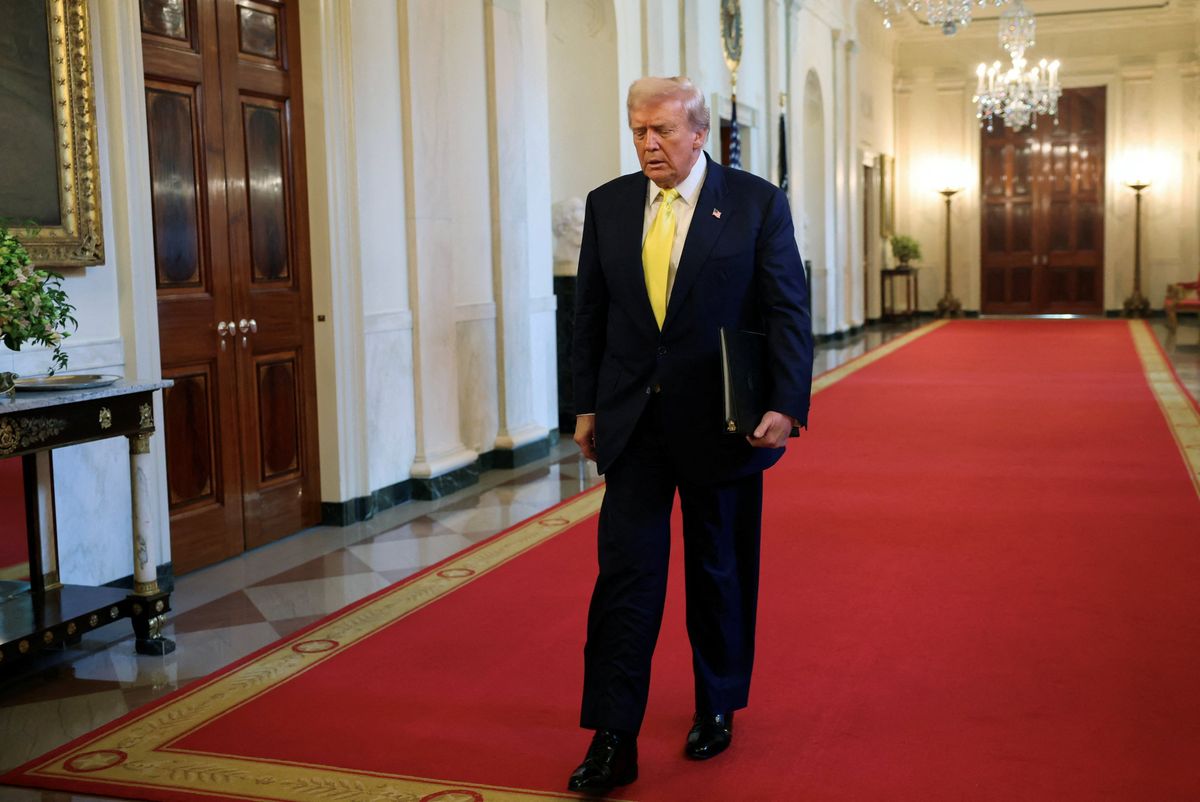
In an article for Democracy Docket published Thursday, journalist Jim Saksa argued that President Donald Trump is systematically expanding his authority to deploy military force within U.S. cities, and that the lack of sufficient legal or legislative pushback risks making such aggressive domestic deployments routine.
Saksa noted that over the past two weeks, Trump has repeatedly threatened to send the National Guard not only to Chicago, but also to New York, Baltimore, Seattle, New Orleans and other major American cities. These threats follow earlier deployments of thousands of troops to Los Angeles in June and Washington, D.C. in August.
Most recently, Trump signed an executive order establishing a National Guard “quick reaction force” prepared for rapid nationwide mobilization.
While these troop deployments are of questionable legality, Saksa pointed out that previous actions, particularly the deployments to LA and D.C., have largely gone unchecked by either the courts or Congress.
This, he warned, could embolden the president to continue deploying military force in Democratic-led cities
Trump’s rhetoric has reinforced this trajectory. He described Chicago as “a killing field right now,” despite evidence of its safest summer in decades.
He further asserted, “I have the right to do anything I want to do. I’m the President of the United States of America,” and added, “If I think our country is in danger, and it is in danger in these cities, I can do it."
Saksa examined the legal response: a district court in California ruled that Trump’s administration violated the Posse Comitatus Act, which broadly prohibits the use of the military for domestic law enforcement, but the court did not deem the deployment itself illegal.
The Ninth Circuit, moreover, upheld the administration’s actions, concluding the deployment to LA was lawful. As a result, around 300 National Guard personnel remain on federal active duty in Southern California nearly three months later.
The article noted the slow governmental response: nearly a month passed before Washington filed a legal challenge, a delay compounded by the District’s unique legal status.
Meanwhile, the White House continues to rely on obscure statutes and novel legal theories, while avoiding reliance on the Insurrection Act of 1807, a more traditional yet controversial legal pathway to deploy troops domestically.
David Janovsky, acting director of the Project on Government Oversight’s Constitution Project, told the outlet that courts and Congress have been "mostly feeble" in response to what he termed a “power grab.”
He voiced concern that there may be no clear limits left on such presidential authority: “I don’t know what the next meaningful limit is,” he said.
The article also included comments from William Banks, professor emeritus at Syracuse University College of Law, who said: “The insurrection act is the big heavy gun."
He added: “It was intended to be utilized, if at all, when all hell is broken loose. It’s for extreme circumstances.”



